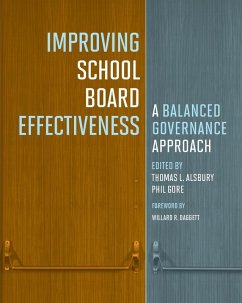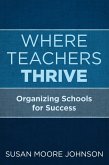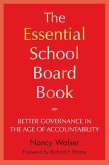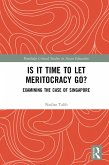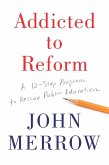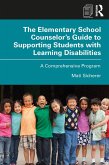Improving School Board Effectiveness offers a clarifying and essential look at the evolving role of school boards and how they contribute to efforts to improve student learning. It examines how board members can establish effective district priorities, and it explores those board policies and actions that result in shared, districtwide commitments to heightened student achievement. This book arises out of a critical need for a better understanding of school boards and the development of helpful tools and guidelines for school board members. At its heart is the notion of Balanced Governance, a principle that most generally "balances the authority of a superintendent to lead a school district with the necessary oversight of a locally engaged and knowledgeable board." Improving School Board Effectiveness is a helpful and practical book that will prove indispensable for school board members, school and district administrators, and everyone with a stake in school improvement and reform.
Dieser Download kann aus rechtlichen Gründen nur mit Rechnungsadresse in A, D ausgeliefert werden.
Es gelten unsere Allgemeinen Geschäftsbedingungen: www.buecher.de/agb
Impressum
www.buecher.de ist ein Shop der
buecher.de GmbH & Co. KG
Bürgermeister-Wegele-Str. 12,
86167 Augsburg
Amtsgericht Augsburg HRA 13309
Persönlich haftender Gesellschafter: buecher.de Verwaltungs GmbH
Amtsgericht Augsburg HRB 16890
Vertretungsberechtigte:
Günter Hilger, Geschäftsführer
Christian Sailer, Geschäftsführer
Sitz der Gesellschaft:Augsburg
Ust-IdNr. DE 204210010

